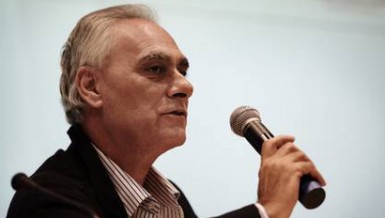By James M. Dorsey
Qatar, in a break with Gulf reluctance to give foreign nationals a stake in their host nations, plans to create a soccer league for low-skilled or un-skilled guest workers who account for the majority of the country’s population.

The decision follows this month’s successful organisation of a soccer tournament for foreign workers deprived of relaxation and entertainment facilities. The league will involve 32 clubs, double the number that competed in the tournament.
The decision comes as Qatar seeks to improve the working and living conditions of foreign labourers in an effort to fend off demands by international trade unions that it allow the creation of independent workers’ organisations and agree to collective bargaining.
The International Trade Union Confederation, which has 175 million members in 153 countries, has threatened to call on its affiliates to boycott the construction of facilities and infrastructure Qatar needs to host the 2022 World Cup. Qatar is expected to bring in up to one million people to work on projects to improve its infrastructure and facilitate the World Cup.
The decision also comes against the backdrop of the Qatar Stars League (QSL) mulling radical change in ownership of the country’s Qatari clubs in a bid to boost stadium attendance.
Qataris admit that stadium attendance is low because Qatari clubs only target Qatari nationals, who account for an estimated quarter of the population and because many perceive the country’s clubs, often owned by members of the royal family, as the ‘sheikh’s clubs’.
In a region in which demography is the elephant in the room when it comes to the future of the smaller states, QSL executive director Adil Ahmed, a Pakistani national, said in what is an almost revolutionary statement that the idea of the foreign workers’ league was “to give low-income workers a sense of belonging in the country they serve”. His deputy, Hani Taleb Ballan, said the league would workers give “a fair opportunity to enjoy the life they had in their countries of origin in Asia and Africa”.
Qatar University sociologist Kaltham Ali Al-Ghanim earlier called on the country’s sports clubs to set up branches in the capital’s Industrial Zone where many of foreign workers are housed without their families “to channel their energy to productive avenues and hunt for sporting talent”. She cautioned that if foreign workers were allowed to “live on the social fringes, the danger is they would take to illegal activities and emerge as a threat to social security”. Ms. Al-Ghanim argued further that this would offer Qatari clubs an opportunity to spot local talent.
James M. Dorsey is a senior fellow at the S. Rajaratnam School of International Studies, director of the University of Würzburg’s Institute of Fan Culture, and the author of The Turbulent World of Middle East Soccer blog


